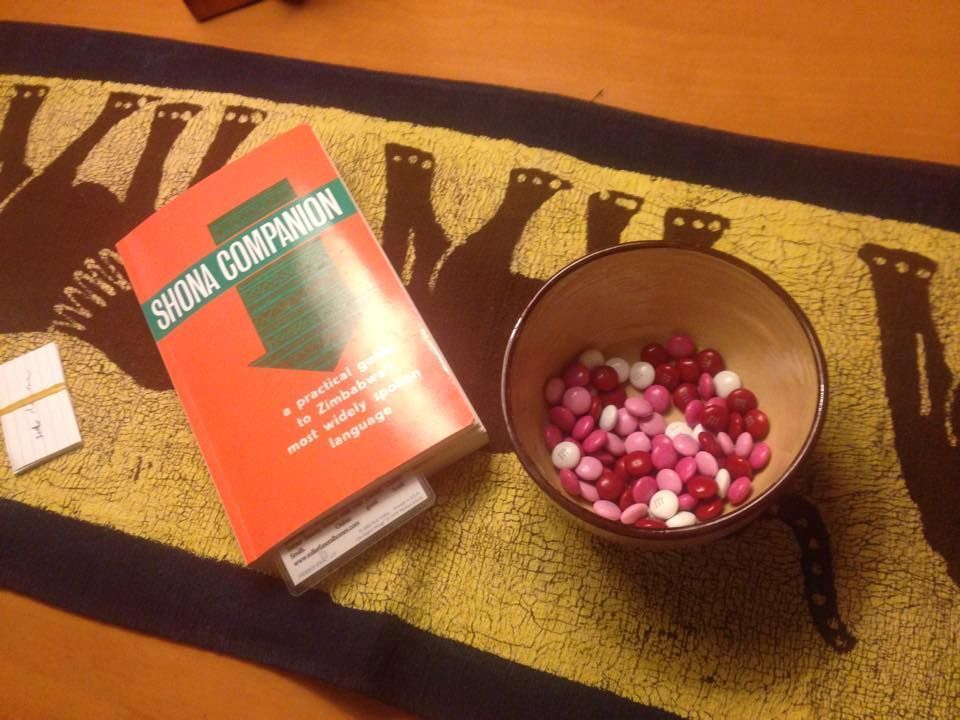Missionaries pack their bags eager to forsake familiar comforts for the sake of the gospel. Even so, when weariness sets in, a well-timed care package can be the encouragement your missionary needs.
Read through these tips and tricks to curate a care package for a missionary you know.
Before You Send Your Care Package
International shipping is nuanced. So, before you spend time and money, ask your missionary to answer these questions:
What is your shipping address?
Find out from your missionary exactly how to fill out the shipping label. Be sure to note if the address should be in English or a local language. Failure to do this might result in your gift never reaching your missionary.
How long does it typically take a package to reach you?
If you are trying to send a timely gift, like a birthday greeting or Christmas card, ask your missionary about average shipping times a few months in advance. Then, give yourself generous lead time.
Are there any items off-limits to mail?
Some countries have quotas on what you can send and how much. For instance, supporters shipping to their caffeine-loving missionary in Ukraine might be disappointed when some of their coffee is confiscated.
Will you be charged a duty to receive this package?
This is huge. In some cases, your missionary will incur a cost to receive their care package. Meaning, what starts as a kind gesture can end as a financial burden.
Avoid this by asking your missionary the ins-and-outs of their host country’s duty system. In some countries, if your package is marked as a “gift” on the customs form and is valued under a specific monetary ceiling, your missionary will not be charged. But if there is no gift allowance, you might find that your missionary politely declines the offer for a care package altogether.
What to Include in Your Care Package
For most missionaries, a care package is more about the “care” than the contents of the package. A tangible reminder of your support will energize your missionary long after the last Oreo is eaten.
The best way to fill your care package is to ask your missionary what he or she would like. Sure, it minimizes the surprise, but asking guarantees you only send items your missionary cannot easily or cheaply obtain themselves. You might be surprised at what they request (like unscented dryer sheets).
To quick-start your shopping list, we asked TEAM missionaries to list their favorite items to receive in the mail. Here’s what they said:
1. Cooking Spices
Seasoning packages top the list of missionary-requested gifts. Cheap, lightweight and non-perishable, these seasoning packets allow your missionary to whip up something comforting and familiar. Popular requests include chili, taco and ranch dip packets.
2. Cozy Scents
A worker in Mexico says, “When our house smells like home, it feels like home.” Help your missionary feel cozy with small votive candles or envelopes of potpourri. If you send air freshener, it should be in a non-aerosol can.
3. Holiday-themed Decor

A worker in Zimbabwe loved working on her language study while munching on Valentine’s Day-themed candies.
Holidays can be a sore reminder of distant relationships and traditions. This is amplified if your missionary is living in a context where a cherished holiday is not celebrated at all. A holiday-themed care package can help spread festive cheer. Include small items like decorative kitchen towels, placemats or cocktail napkins.
4. Beauty and Personal Products
Your missionary will be able to purchase most personal products, but he or she might not have access to a favorite brand or scent. Pamper your missionary with a simple pleasure like sweet-smelling soap or a moisturizing lip balm. Nail polish and perfume, however, cannot be shipped internationally.
Packing tip: Always double-bag liquid items. If you are sending food items in the same package, avoid flavor transfer by bagging and sealing scented items or shipping them separately.
5. Favorite Snacks

In a country with abundant tea, a worker in Japan enjoyed sipping her favorite coffee blend for her birthday.
A worker in Ukraine suggests, “Ask your missionary [his/her] favorite candy and buy more than you think is normal … because some days are just Reese’s Cup days.” Your missionary likely has beloved salty or sweet snacks that they cannot purchase on the field. Consider including a favorite snack for your missionary to enjoy. Durable goods like protein bars, hard candies and coffee travel best.
6. Books
Depending on their context, your missionary might not have easy access to books written in their language. Ask your missionary if there are any titles on their wish list you can send. If you’re sending a package to a family with kids, ask if there are children’s books you can include. Either ship the books yourself or research if you can send your gift through AmazonGlobal .
7. Small Toys or Games
Card games like Uno or Dutch Blitz fit nicely in a padded envelope and can provide hours of entertainment. For missionary kids , ask their parents what small toys, like action figures or plush toys, they might enjoy receiving.
8. Mementos from Home
Help your missionary honor their home culture with simple mementos. If your missionary has a favorite sports team, send him or her a team pennant to tack on the wall. Or consider mailing something like a local postcard or family photo your missionary can display.
9. Hand-Written Notes

Workers in Mexico were encouraged to receive these notes from their sending church.
A warm note is often the most treasured item in the care package. Include a heartfelt note of encouragement and love that reminds your missionary of your support. Consider gathering a church small group to write letters that you can bundle and ship together.
What did we leave off the list? In the comments below, let us know your favorite missionary care package tips and tricks.
And if you want more ideas for engaging your church in missions, check out our Church Resources page. You’ll find resources for supporting missionaries at every stage. Plus, you can get a free consultation with one of our church engagement managers.




















